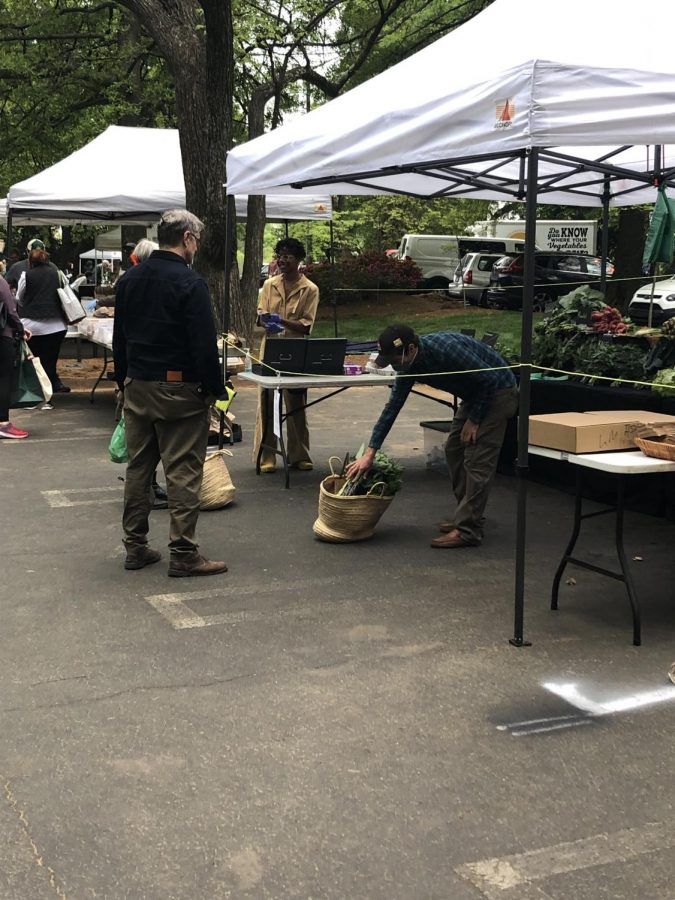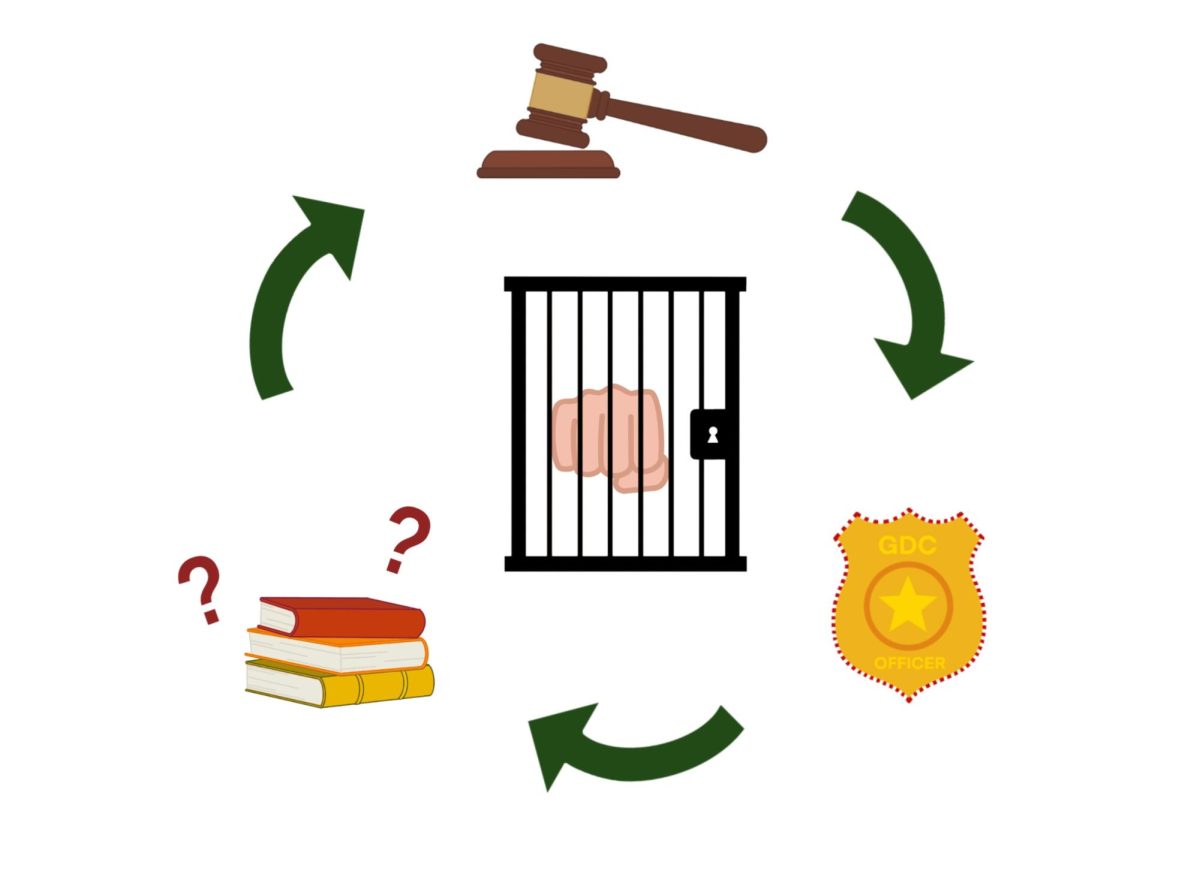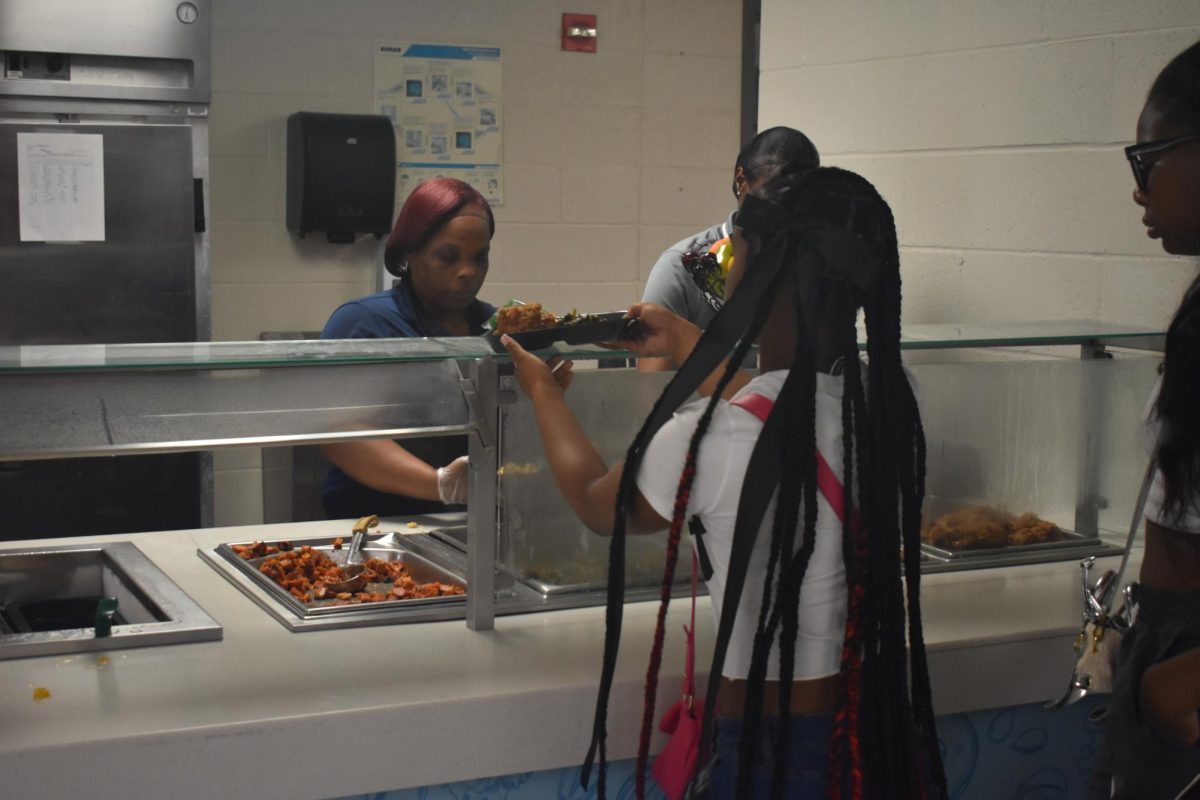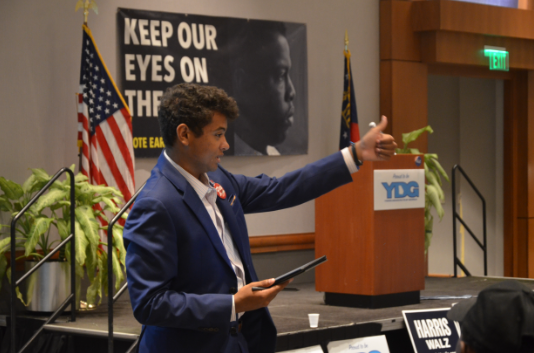COVID-19 forces farmers markets, customers to adapt
Customers shop for produce while keeping their social distance at the Freedom Parkway Farmers Market.
April 25, 2020
From afar, the Freedom Parkway Farmers Market looked like a typical farmers market, with white tents and fresh produce on display. However, something was different. Due to the COVID-19 pandemic, the number of mask-wearing customers allowed into the market at any given time was limited, and customers must wash their hands for at least 20 seconds before entering.
Like many other small businesses, local farms are suffering from the spread of COVID-19. When Atlanta Mayor Keisha Lance Bottoms issued a stay-at-home order and designated certain businesses as “essential services,” many farmers were grateful to hear that farmers markets were on that list. As a result, many small local farmers have shifted their business plan to rely on farmers markets for a majority of their revenue.
“Right now, the farmers markets are where we sell most of our product, but sales are mostly down across the board,” said Greg Kelly, a dairy farmer. “They’re still going on, and we’re still selling. It’s just not as vigorous as it usually is.”
Some farmers are in a harder economic situation than others. Laura Pallas is a berry farmer, and the blueberries that she farms come into season in June. Right now, she’s able to sell some of the berries she’s already picked, but she’s worried that the pandemic will affect picking season.
“It’s definitely causing us to look at new avenues to be able to reach consumers,” Pallas said. “For us, we’re a berry farm, so we’re just coming into our season now so we haven’t experienced a full impact yet until we get fresh berries.”
Many vendors have instituted strict practices to keep both the produce and the customers safe. All vendors wear masks and gloves. Customers are not allowed to touch the produce while browsing. The market is cashless. Some farmers hope that these measures will incentivize customers to shop at farmers markets instead of larger grocery stores.
“It’s much more dangerous to go to a supermarket,” Kelly said. “How many people have touched those things in the supermarket? You’re in an enclosed area with circulated air. This is much safer when you think about it. You have to get food, so you might as well get the good stuff and get it as safely as you can.”
Many loyal customers are determined to continue supporting the farmers market even if the market has changed to accommodate social distancing practices.
“They barely make money as it is, so now with the economy and people not going out, it’s really really important to support them, especially the people who produce raw food,” said Melissa Moore, Freedom Parkway Farmers Market customer. “I think if you feel comfortable doing it right now, this is the best time to support local businesses ,and particularly farmer’s markets, because these are the people who are most at risk of losing their business.”
Most customers are happy to still be able to buy fresh produce and support local farms at these farmers markets. However, some can’t help but notice the differences in the market in the wake of the pandemic.
“It’s definitely changed, but I’m confident in the process,” said Carolyn Meltzer, also a Freedom Parkway Farmers Market customer. “It used to be that we would come and bring our dogs and get coffee and socialize and hang out for a while and see neighbors. Now, it’s just go in and leave.”
Many farmers are encouraged by community participation in farmers markets. They hope that the quality and cleanliness of the produce will incentivize local customers to continue supporting local farmers even after the pandemic ends.
“Farms are still producing, so while they may not be finding food in the grocery stores, a great place to go are farmers markets and contact local farms directly to find out what’s available and do pre-orders,” Pallas said. “There’s food out there, it’s just maybe having to contact farms directly to see what they have available.”







